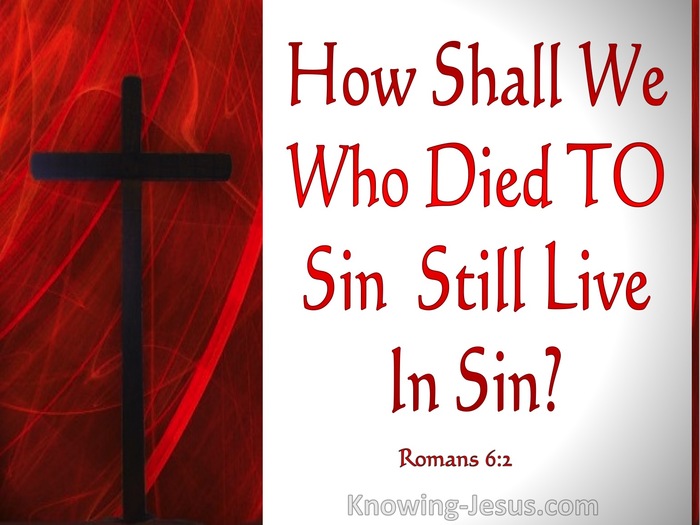◄ Dead to Sin ►

What shall we say then? Shall we continue in sin that grace may abound? Certainly not! May it never be! How shall we who died TO sin still live in sin?
Romans 6:1-2
Liberty of the Cross
Paul wants the believer to discover the liberation that he found in the cross of Christ. He longs that Christians truly understand the glory and wonder of God’s grace. Paul was thrilled to explain that all aspects of sin and death are dealt with by the cross. The cross of Christ dealt with both the sins we commit and the sin nature inherited from Adam.
Gates of Grace
The first 7 verses of Romans chapter 6 spell out the significance of being crucified unto sin. This short passage gives a bird's-eye view of a believer’s identification with Christ. This precious portion of Scripture unfolds the advantages of grace – in logical steps. And in a series of rhetorical questions, Paul gently guides us through the gates of grace.
Glories of Justification
Chapter after chapter and verse-by-verse, Paul reveals the glories of justification – the fall into sin by one man:- Adam.. which plunged the human race into death, so that the transgression of one man resulted in the condemnation of the human race. The gift of salvation that was freely bestowed on us through one Man:- Christ Jesus, so that by the obedience and righteousness of one Man, many were made righteous – for by His death and resurrection the consequences of sin were done away with.
Grace Abounds
Paul builds up his case by showing that the Law’s perfection caused sins to increase. Men’s inability to keep the Law demonstrated the amazing grace of our justification, showing that where sin increased, the grace of God abounded all the more. Finally, the building blocks of Paul’s reasoning led him to ask the intriguing question: What shall we say then? Shall we continue in sin that grace may abound all the more?
Gift of Salvation
Having demonstrated God’s amazing gift of salvation by grace through trusting Christ, Paul paraphrases a question he knows must be lingering in the minds of his listeners, “Shall we keep on sinning so that God’s grace may abound more and more?” Imagine that! Shall we revel in sin so that the grace of God can increase even more!
Broke Sin’s Power
Certainly not, is his cry! How shall we who died TO sin live any longer in it? For when Christ died and rose again He broke the power of sin WITHIN us. He not only paid the price for our sins but broke the power of sin IN us.
Inherent Sin
The sin nature within man is imputed to ALL people. The sin nature is inherent sin in us ALL, but when it says :- Christ died TO sin, it means that He broke sins’ power in US. We were slaves to the sin nature, but He broke the power of the sin nature within us.
Identified with Him
You see.. when Christ died on the cross we were identified with Him in His death. When Christ rose from the grave we were identified with Him in His resurrection. So how shall we who died TO sin live any longer in it? he pleads.
Newness of Life
When Christ died on the cross, our old sin nature was identified with Christ’s death. The power of the old sin nature was broken by the death of Christ. When He rose from the dead, our new nature in Christ identified with His resurrection. The righteousness of Christ is imputed to us – in our new life in Christ, for Christ is the power of God and that power has raised us up into newness of life.
Baptism INTO Death
Therefore, we have been buried with Him through baptism INTO death, so that as Christ was raised from the dead, through the glory of the Father, so we too might walk in newness of life.
Baptism INTO Life
For if we have become united with Him in the likeness of His death, certainly we shall also be in the likeness of His resurrection - knowing this, that our old self was crucified with Him, in order that our body of sin might be done away with, so that we would no longer be slaves to sin; for he who has died is freed from sin. S0….. shall we continue in sin that grace may abound? May it never be! How shall we who died TO sin still live in sin?

Never miss a post









